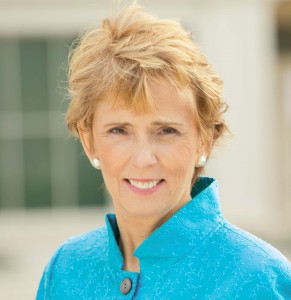POST: Is Your Doctor Emotionally Intelligent?
Because it’s easier to think than feel, many doctors forget how important it is to communicate their feelings—or they simply don’t know how.
Have you ever wondered whether doctors have feelings? Let me assure you that, although we are pretty good at hiding them, doctors share the same universal emotions as everyone else: joy, happiness, sadness, anger, fear, surprise, and disgust. However, because it’s easier to think than feel, many doctors forget how important it is to communicate their feelings—or they simply don’t know how.
 Learning from Riley
Learning from Riley
Although most doctors wouldn’t trade that knowledge for anything, because it is how we do our work, patients benefit when doctors are able to use both their IQ (the rational) and their EI (emotional intelligence). Knowledge in partnership with emotional intelligence provides exceptional results for patients.We can all learn a lot about emotions from Riley, the 11-year-old star of Pixar’s animated movie, Inside Out. If you have seen it, you learned that emotions are headquartered in our minds. For doctors, whose brains are filled up with a vast amount of medical knowledge, emotions are fighting for space.
What is emotional intelligence?
Emotional intelligence enables you to understand and manage your own emotions as well as the emotions of the people around you. People with a high level of EI are aware of what they and others are feeling, what the emotions mean, and, importantly, how they are affecting others.
As we see in Riley, all our emotions are necessary and helpful, depending on the circumstance. In the case of doctors, this could mean feeling and expressing:
- Joy after successfully delivering a baby, or completing a successful strategic planning retreat.
- Anger at a coworker who does something “stupid”, or at yourself when something goes wrong for a patient.
- Sadness after an unexpected and sudden death, or after not being chosen for the chair position.
- Fear when treating someone dying in front of your eyes and you don’t know how to fix it, or during a performance review.
- Disgust at your inability to fix the healthcare system when you know it’s harming people (or when eating lunch in some hospital cafeterias).
Is your doctor emotionally intelligent?
 What’s the difference between a low EI and high EI doctor? Let me give you an example. If we peer down into an operating room, as they often do in TV shows and the movies, we might witness an assistant handing the surgeon the wrong instrument by mistake. Low EI doctors would immediately shout angrily at the assistant, making every member of the surgical team uneasy—and more likely to make a mistake themselves as a result.
What’s the difference between a low EI and high EI doctor? Let me give you an example. If we peer down into an operating room, as they often do in TV shows and the movies, we might witness an assistant handing the surgeon the wrong instrument by mistake. Low EI doctors would immediately shout angrily at the assistant, making every member of the surgical team uneasy—and more likely to make a mistake themselves as a result.
High EI doctors would calmly correct the mistake and talk with the assistant privately after surgery to find a solution that would prevent the mistake from happening again. In this case, the doctor’s high level of EI would probably save the team and the patient from bad outcomes. Patient-centered care thrives on positive, cooperative relationships all around.
Low EI doctors are fond of assuming a God-like stance through the intimidation of everyone around, a proven relationship blocker. Inside Out director, Pete Docter (yes, a coincidence), says he “is not the type to swoop in with stereotypical director bravado—’stand back, I’ve got this’,” according to a recent interview in the NY Times. “I’m not the typical take-charge, silver-backed gorilla director,” he says, which is an almost perfect description of the personas of doctors who thrive on instilling fear in patients and nurses alike.
The nocebo response
I believe doctors with low EI are more likely to cause something called the “nocebo” response, the opposite of the placebo effect. The nocebo response occurs when patients experience negative interactions with their doctor or feel a lack of understanding or acceptance from them. This can create anger and stress that actually worsens their illness.
Healing is all about efficient, respectful teamwork between doctor and nurses and other professionals, and their partnerships with patients. Incivility at any level can cause medical errors; long term, it can compromise our immune systems, contributing to myriad health problems like cardiovascular disease, cancer, and diabetes. Effective teams and partnerships depend on the emotional intelligence of participants, particularly the doctors who are leading a patient’s care. Emotional intelligence opens interactions up to the benefit of everyone. How we treat one another matters: at work, at home, and in the hospital or doctor’s office.
Financial benefits as well

Nearly 20 years later, as healthcare strives to become more patient-centered, we’re learning that when doctors express feelings like empathy and compassion, patient outcomes improve. It’s logical to assume that healthier patients bring cost savings. The welfare of both patient and industry may well depend on the individual behaviors of physicians.Although better human relationships are reason enough to incorporate EI into healthcare, there are also financial benefits in a system whose long-term viability depends on reducing costs. Because of research of people like Peter Salovey and Daniel Goleman in the 1990s, the business community has come to realize that concepts like emotional intelligence (EI) correlate strongly with performance, and, in particular, with effective leadership.
Recent studies show that physician EI can positively affect leadership, teamwork, and clinical, financial, and organizational outcomes. EI influences patient outcomes and organizational success. Pepsi learned their high-EI executives increased ROI (return on investment) by 1000%. What are the possibilities for healthcare if EI is universally practiced?
Pete Docter, Director of Pixar’s “Inside Out” | by Dvcnut | via pixar.wikia.com
Published on The Doctor Weighs In
[mashshare]CATEGORIES:Recent Blog Articles

In Medicine, The “Soft” Skills Are Essential
Michael’s Story: The Beginning “I’m straightforward, to the point,” said Michael, the CEO at a large inner-city hospital. “The people I work with—they may not like me, but they know I’m right.” “What else?” I said to Michael, whom I had just been retained to coach. “I just wish they understood me. I do what’s […]
CATEGORIES: Coaching Emotional Intelligence Physician Leadership

Dr. Margaret Cary spoke at the American Society of Hematologists
December 3, 2018 Dr. Cary delivered an interactive presentation on Women’s Leadership at the Women in Hematology reception at the ASH’s annual meeting of nearly 28,000 attendees in San Diego.
CATEGORY: Coaching

What We Can Learn About Leadership from The Boss
A Bruce (The Boss) Springsteen fan reflects on what her coaching clients can learn about leadership from him.
CATEGORY: The Doctor Weighs In

Develop a Coaching Culture
What might you do to develop a coaching culture in your office, in your organization? “I know I blow up and get angry. I am protective about my patients and the physicians in my department and I can’t help myself.” Dr. Leonard was one of my coaching clients, a surgeon who had left a trail […]
CATEGORIES: Coaching Physician Leadership

The Value of Coaching in Medicine
With Jack Penner Jack and I recently joined Dave Etler, Administrative Services Coordinator for Student Affairs and Curriculum with Carver College of Medicine at the University of Iowa, and Carver medical students Amy Young, Aline Sandouk, and Mark Moubarek at The Short Coat Podcast for “weird news, fresh views, helpful blues, and interviews by students, for students” […]
CATEGORY: Medical Education

The Value of Presence in Medicine
When an American doctor is asked to examine her friend’s mother in a Chinese hospital, she realized it was her presence and caring that really mattered. Zhuo came with a self-assured attitude, lots of stories, and several films under her belt. I had volunteered to host a film director during the Denver International Film Festival. […]
CATEGORIES: Emotional Intelligence Quality of Care
